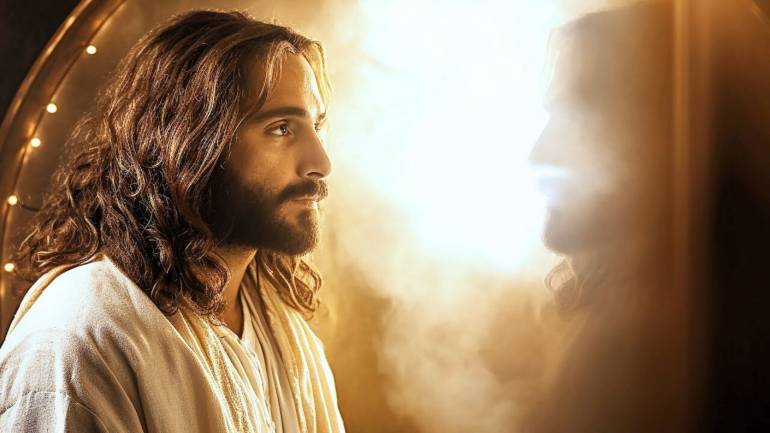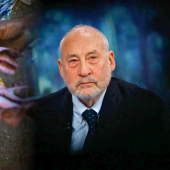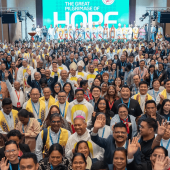In God’s Image: Mental Health and Dignity

In the Catholic community discourse, despite its significant impact on parish and community settings and individual families, mental health does not receive an equal level of recognition as physical health issues due to the prioritization of sensationalized topics like abortion, sexual scandals, or gay marriage.
One out of every five adults statistically experiences psychological distress of some kind. The invisibility of mental illness makes communication about its severity difficult despite being common and extending beyond just having a bad day. The most significant hurdle preventing people from accessing proper treatment is stigma; also, in some regions of the world, people wrongly assume that mental illness is a form of punishment by God or an outcome of ancestral wrongdoings. Some individuals even think this contradicts a life of faith or Church teachings.
I recall an instance from the early 90s when my brother battled schizophrenia despite misconceptions surrounding it. At that time, in India, well-meaning Catholics and priests suggested reparations for sins committed by our forefathers through Mass services or prayers. Although I believe in the power of prayer and its important role in psychological healing, it's important to realize that mental illness shouldn't be treated as a form of divine punishment. As with visible diseases such as cancer, this is just another tumultuous wave of suffering which deserves the same empathy and compassion: just as we wouldn't tell a cancer patient to "just pray it away," the same holds for individuals with mental illness.
The Catholic Church's social teaching emphasizes that access to primary healthcare is a collective responsibility and crucial for the common good (Compendium of the Social Doctrine of the Church, 166). Furthermore, in line with Gaudium et Spes 27, every individual, irrespective of their affliction, is created in God's image and likeness (Genesis 1:27) and deserves to be treated with love and dignity.
St. John Paul II unequivocally affirmed the inherent worth of individuals struggling with mental illness, stating that they always bear the divine image and possess an inalienable right to be recognized and respected as persons. Pope Benedict XVI dedicated the 14th World Day of the Sick in 2006 to shed light on the plight of those affected by mental illness. In his Apostolic Exhortation to Young People (Christus Vivit, 149), Pope Francis acknowledged the aspirations of young individuals with mental health challenges, emphasizing their unique abilities and calling for their inclusion and appreciation within the community.
Despite the Catholic Church's teachings and the consistent emphasis by the last three popes on the significance of mental health care, there remains a need for greater attention and action within the Church to address this vital issue.
How can we practically address mental health as a Church and as individuals? Here are three fundamental approaches:
-
Supporting families and promoting open dialogue are crucial. Families should recognize that perfection is unattainable, allowing them to address mental health challenges. Research shows that people often turn to the Church for support during distress. Unfortunately, many parishes lack the resources to assist individuals with psychological trauma, leading them to seek alternative solace in practices like yoga or nature. Creating open and non-judgmental discussions about mental health within parish communities is essential to bridge this gap. This can be accomplished through workshops, tapping into the riches of the Church like Benedictine or Ignatian spirituality for a balanced life, mental health ministries, or support groups. These initiatives foster understanding, empathy, and support for those struggling and their loved ones.
-
Secondly, integrating human psychology into priestly formation is crucial. Recognizing the value of psychology and psychiatry in Catholic thought: priests should know human psychology. The document Ratio Fundamentalis (universal guidelines for the formation of priests) from the Dicastery for the Clergy in 2016 emphasizes the beneficial contribution of psychology to pastoral theology for the education of future pastors.
-
Finally, it is important to emphasize that there is hope for those facing mental illness, as both science and faith affirm. Seeking professional help is crucial for individuals or anyone they know who may be experiencing mental health challenges. While it is unnecessary to consult a Catholic psychologist exclusively, many psychologists strive to respect their patients' faith backgrounds and spiritual needs. It is essential to understand that faith and prayer are not substitutes for therapy or medication but can complement psychological treatment.
The Catechism of the Catholic Church, specifically in paragraph 365, recognizes the profound unity of the soul and body, considering the soul as the "form" of the body, highlighting their intimate nature. God has wired us as physical, emotional, and spiritual beings with the ultimate desire for our wholeness. However, the journey to wholeness differs for each person. Despite acknowledging that God can heal us now, we might feel apprehension since we cannot predict when or if healing will occur in this life. It could happen today, tomorrow, or it could be in heaven.
The Church's primary mission is to remove barriers that hinder people from encountering Christ. Therefore, when we witness the struggles and prevalence of mental illness worldwide, we must ensure that individuals genuinely grasp God's love for them. They need to hear from the Church that their condition or suffering does not define their identity. Whether healing comes or not, our interactions should leave people feeling loved when they leave our presence. Through ministry encounters, people must know that God loves them (1 Cor. 14:1) – "Let love be your highest goal." Love will always entail the highest risk in the Kingdom of God.
Radio Veritas Asia (RVA), a media platform of the Catholic Church, aims to share Christ. RVA started in 1969 as a continental Catholic radio station to serve Asian countries in their respective local language, thus earning the tag “the Voice of Asian Christianity.” Responding to the emerging context, RVA embraced media platforms to connect with the global Asian audience via its 21 language websites and various social media platforms.














